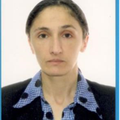References
- Abashmadze, R., Muradian, E. (2024). Georgia in 2023: Report on the Country’s Economy. PB Services Georgia.
- Abesadze, R. (2022). The main directions of the Innovation Development Strategy of the Georgian Economy. Ekonomisti (2), 22-30.
- Abuselidze, G. (2021). Competitiveness Analysis of the Georgian Transport and Logistics System in the Black Sea Region: Challenges and Perspectives. Computational Science and Its Applications–ICCSA 2021: 21st International Conference. Cagliari, Italy.
- Abuselidze, G. (2019). European Integration of Georgia and Financial-economic Condition: Achievements and Challenges. European Journal of Sustainable Development, 8(1), 53-53.188
- Akhvlediani, T. (2022). Geopolitical and Security Concerns of the EU’s Enlargement to the East: The Case of Ukraine, Moldova and Georgia. Intereconomics, 57(4), 225-228.
- Aslamazishvili, N. (2021). Pandemic and Recent Trends in Balance of Payments: The Case of Georgia. Globalization and Business. 12, 94-102. https:// doi.org/10.35945/gb.2021.12.013
- Aslamazishvili, N. (2020). Georgia in the World of Coronomics: Threats and Challenges. Globalization and Business. 10, 94-102. https:// doi. org/10.35945/gb.2020.10.012
- Aslamazishvili, N. (2018). Balance of Payments of Georgia: Key Aspects of Its Analysis. Globalization and Business. 6, 136-143. https://doi. org/10.35945/gb.2018.06
- Arezki, R. (2022). Economics in the New Age of National Security. https://www.project-syndicate.org/commentary/will-global-fragmentation-produce-new-economic-thinking-by-rabah arezki-2022-08
- Animitsa, E.G., Animitsa, E.P. and Glumov, A.A. (2015). Import Substitution in the Industrial Production of the Region: Conceptual Theoretical and Applied Aspects. Ekonomika regiona, 3, 161-169. Association agreements between the EU and Moldova, Georgia and Ukraine. European Implementation Assessment.
- Asian Development Bank. (2022). Public-Private Partnership Handbook.
- Babuadze, N., Veshapidze, Sh. (2010). Some Aspects of Chinese Business Psychology. “New Economist”, No. 2. (In Georgian).
- Babuadze, N., Veshapidze, Sh. (2015). Shanghai Cooperation Organization: Will China Rival the US? “Historic Verticals N1. (In Georgian).
- Babuadze, N., Veshapidze, Sh., Kvatchadze, N. (2015). Confucianism and Taoism: Postulates, Principles, Precepts, Values. Business-engineering, N1. (In Georgian).
- Bauer, J. M. (2013). The Evolution of the European Regulatory Framework for Electronic Communications. IBEI Working Papers 2013/41 Telefonica Chair Series, Available at SSRN: https://ssrn.com/abstract=2509899 or http:// dx.doi.org/10.2139/ssrn.2509899
- Bedianashvili, G. (2023). Macrosystem Socioeconomic Challenges of the Post-pandemic Period. Proceedings of the National Scientific Conference: “The World Economy in the Post-Pandemic Period: Results and Challenges”. Ivane Javakhishvili Tbilisi State University, Faculty of Economics and Business. 41-46.
- Bedianashvili, G. (2018). Culture as a Factor in the Formation of the Knowledge Economy with the Systemic and Institutional Context of Paradigmatic Changes. Globalization and Business. 6, 58-66. DOI: 10.35945/ gb. 2018.06.007 6
- Bedianashvili, G. (2021). Macroeconomic and cultural determinants of the covid-19 pandemic crisis. Bulletin of the Georgian National Academy of Sciences. 15(2):191-197.CAP 2023-2027. https://agriculture.ec.europa.eu/common-agricultural-policy/cap-overview/cap-2023-27/key-policy-objectives-cap-2023-27_en
- Bedianashvili, G. (2022). The COVID-19 Pandemic, Globalization and the Socio-Economic System of the Country (Macro Aspect). Proceedings, p.38–42.
- Bount, A. (2016). The Expected Benefits of Trade Liberalization for World Income and Development, Opening the „Black Box“ of Global Trade Modeling. Food Policy Review, 8, IFPRI, Washington.
21. Cave, M., Genakos, C. Valletti, T. (2019). The European Framework for Regulating Telecommunications: A 25-year Appraisal. Rev Ind Organ 55, 47–62 https://doi.org/10.1007/s11151-019-09686-6
22. CERRE. (2024). Ideas for The Future of European Telecommunications Regulations. https://cerre.eu/publications/ideas-for-the-future-of-european-telecommunications-regulations/
23. Chowdhury, A., Garonna, P. (2007). Effective Foreign Aid, Economic Integration And Subsidiarity: Lessons from Europe. CASE Network Studies and Analyses No. 346.
24. Charnovitz, S. (2018). Resist az Protectionism: The Top Trade Priority for the G20 Rebuilding Global Trade, 2018.
25. Danelia, I. (2021). Impact of COVID-19 on Container Shipping Industry Case of Georgia. DOI: 10.13140/RG.2.2.27147.00807
26. Danelia, I. (2021). Intercontinental Transportation of Containerized Cargo and The Middle Corridor. DOI: 10.13140/RG.2.2.25469.28640. Conference: “Increasing the competitiveness of international rail transport in the
framework of TRACECA”.
27. de Streel, A. (2008). Current and future European regulation of electronic communications: A critical assessment, Telecommunications Policy, Elsevier, vol. 32(11), pages 722-734, December
28. Driskill, R. (2015). Deconstructing the Argument for Free Trade. Washington. 2015.
29. Douglas, A. Irwin (PIIE). (2020). Import substitution is making an unwelcome comeback
30. EC. (1996). Decision No 1692/96/EC of the European Parliament and of the Council of 23 July 1996 on Community guidelines for the development of the trans-European transport network
31. https://eur-lex.europa.eu/eli/dec/1996/1692/2010-08-25
32. Eichhammer, W., Boede, U., Gagelmann, F., Jochem, E., Kling, N., Schleich, J., Schlomann, B., (2001). Greenhouse Gas Reductions in Germany and the UK: Coincidence or Policy Induced? An Analysis for International Climate Policy. German Environment Ministry, Berlin
33. European Commission. (2008). Antitrust: Commission imposes € 899
million penalty. https://ec.europa.eu/commission/presscorner/api/files/document/
print/en/ip_08_318/IP_08_318_EN.pdf
34. European Commission. (2019). A Clean Planet for All. A European Strategic
Long-term Vision for a Prosperous, Modern, Competitive and Climate Neutral
Economy, COM/2018/773. Brussels.
35. European Commission. (2021). The Single Market Programme. https://
commission.europa.eu/funding-tenders/find-funding/eu-funding-programmes/
single-market-programme/overview_en
36. European Commission. (2023). State Aid Scoreboard. https://competition-
policy.ec.europa.eu/document/download/0b2037c5-c43f-4917-b654
f48f74444015_en?filename=state_aid_scoreboard_note_2023.pdf
37. European Commission. (2023b). Report on CAP Covering the 2023-
2027 Period Highlights Shift towards a Sustainable EU Farming Model. Brussels.
38. European Commission. (2024). In-depth Reviews of Strategic Areas
for Europe’s Interests. https://commission.europa.eu/strategy-and-policy/
priorities-2019-2024/europe-fit-digital-age/european-industrial-strategy/
depth-reviews-strategic-areas-europes-interests_en
39. European Commission. (2024). Performance of the Agricultural Sector.
https://ec.europa.eu/eurostat/statistics-explained/index.php?title=Performance_
of_the_agricultural_sectorN:~:text=Highlights,the%20index%20
level%20in%202015.
40. European Commission. (2024). The European Green Deal. https://
commission.europa.eu/strategy-and-policy/priorities-2019-2024/european-
green-deal_en
41. European Council. (2024). EU Industrial Policy. https://www.consilium.
europa.eu/en/policies/eu-industrial-policy/
42. European Investment Bank. (2022). European PPP Expertise Centre
Market Update.
43. European Parliament. (2009-2014). The Lisbon Strategy. https://www.
europarl.europa.eu/meetdocs/2009_2014/documents/empl/dv/lisbonstrategybn_/
lisbonstrategybn_en.pdf
44. European Union. (1985). Completing the Internal Market (White paper
of the European Communities).
45. European Union. (2024). EU IN GEORGIA. ENPARD - EU for Georgia. eu-4georgia.eu
46. Eurostat. (2024). Industrial Production (volume) Index Overview.
https://ec.europa.eu/eurostat/statistics-explained/index.php?title=Industrial_
production_(volume)_index_overviewNDevelopment_of_main_industrial_
groupings_and_individual_industries
47. Eurostat. (2025). Gross Value Added and Income by Main Industry.
https://ec.europa.eu/eurostat/databrowser/view/nama_10_a10__custom_
10313759/default/table?lang=en
48. Fransman, M. (1995). Japan’s Computer and Communications Industry:
The Evolution of Industrial Giants and Global Competitiveness. Oxford: Oxford
University Press.
49. Gaghanidze, G. (2019). Export Growth: The Necessity of Creating New
Export Products. “Globalization and Business”, volume 4 N7.
50. Grotz, C. (2005). Handbook of Renewable Energies in the European
Union: Case Studies of the EU-15 States / Second ed. Frankfurt: Peter Lang Verlag.
51. Gaganidze, G. (2018). Foreign Trade of Georgia, Moldova and the Ukraine
with the European Union after Signing the Association Agreement. Ecoforum
Journal, Volume 7, Issue 1(14).
52. Garakanidze, Z; Bilynska, M. (2024). Exploring Individual Resilience
as A Component of National Resilience In Ukraine During The Wartime. Business-
Engineering, N3-4, 2024. pp.11-16; https://business engineering. bpengi.
com/home/2024/number-03-04;
53. Garakanidze, Z; Bilynska, M. (2024). Possible New Role of the GTS
(Ukraine) for the EU Energy Security. Bucharest, Romania. https://www.geopolitic.
ro/2024/09/possible-new-role-gts-ukraine-eu-energy-security/;
54. Garakanidze, Z; Garakanidze, N. (2023). The Prospect of Turning Georgia
into A Gas Hub. Business-Engineering, N1-2, https://business-engineering.
bpengi.com /home /2023/ number-01-02. pp.34-40; https://drive.google.com
/file/d/ 1BW0qEDPR9OjlPKZXqBIoFIPuJ8Vs1Sr7/view;
55. Garakanidze, Z.; Garakanidze, N. (2023). Whether or Not Regional Gas
Hub Is Formed on The Black Sea? Bucharest, Romania. http://www.geopolitic.
ro/2023/05/whether-not-regional-gas-hub-formed-black-sea/
56. Garakanidze, Z., Garakanidze, N. (2018). Ekonomichnyj separatyzm ta
joho vyiavlennia [Economic Separatism and its Detection]. Bulletin of the NAPA,
Series “Рublic Аdministration”,3 (90), 2018, Kiev, Ukraine. pp. 32-42; http://
visnyk.academy.gov.ua/pages/dop/81/files/1c61030f-cfd0-49b0-b853-32e88ee63f54.pdf
57. Garakanidze, Z. and Pavliashvili, S., 2024. Demonopolization of the EU Gas Market in the Conditions of the Russia-Ukraine War. Economics & Business (1987-5789), (2).
58. Gvelesiani, M., Veshapidze, S. (2016). European Values: What Can We Implement from Them and How Can We Implement Them in Georgia. “Globalization & Business”. (1). 40-46. (InGeorgian).
59. Gvelesiani, M., Veshapidze, S. (2016). Values: Limits and Contradictions. Globalization & Business, (1). 35-39. (In Georgian).
60. IEA. (2017). World Energy Outlook 2017: Executive Summary. OECD/IEA
61. Jamagidze, L. (2016). B/Orders and Economic Integration Preferences:
The Case of Georgia. Ecoforum Journal, 5(3).
62. Jamagidze, L. (2020). Non-Tariff Measures and Georgia-EU Trade
Integration Prospects. Інноваційні Стратегії Та Моделі Економічних
Трансформацій В Умовах Євроінтеграційних Викликів, in Socio-Economic
Development and Mechanisms Their Implementation in The Global Dimension:
Collective monograph / edited by M. Bezpartochnyi, in 3 Vol. // VUZF University
of Finance, Business and Entrepreneurship. Sofia
63. Jamagidze, L. (2022). Georgia-Romania Economic Cooperation and the
New Regional Challenges. EURINT, 9(1), 133-150.
64. Jamagidze, L. (2023). Structural Transformation, Trade and Development:
Georgia in Comparative Perspective. Centre for European Studies (CES)
Working Papers 15(3).
65. Jibuti, M., Melua, D. (2023). The European Perspective of Local Self-Government
in Georgia (Political Economy Aspects). Bulletin of the Georgian National
Academy of Sciences, 17(3), 121-127.
66. Karagoz, M. (2015). Comparative Performances of EU-15 and Turkey: a
PIN Analysis. Applied Economics Letters, 23(1), 19–22.
67. Karchava, L., Veshapidze S., ChHiabrishvili, K. (2023). Economic Perspective
of Establishing Strategic Partnership Between China And Georgia. DOI
suffix: 10.36962/NEC18032023-7. The New Economist N 3 (2023), Vol 18, Issue
3 (In Georgian).
68. Kharaishvili, E; Gechbaia, B.; Tsiklashvili, N.; Katamadze, G. (2024). Digital
Transformation of the Agricultural Sector and Its Impact on Productivity
in Georgia. BIO Web Conf., 114 (2024) 01002. DOI: https://doi.org/10.1051/
bioconf/202411401002
69. Khikhadze, L. (2018). The World Trading Organization’s Mission in the
Conditions of Globalization and its Influence on the Transitional Economical
Countries, World Economy and International Economic Relations, International
Scientific Collection, Kiev
70. Knight, D. M. (2017). The Green Economy as a Sustainable Alternative?
Anthropology Today: Volume 33, Issue 5, 28-31.
80. Komor, P. (2004). Renewable Energy Policy. New York: iUniverse Inc.
71. Lipp, J. (2007). Lessons for Effective Renewable Electricity from Denmark,
Germany and the United Kingdom. Energy Policy № 35, 5481–5495.
72. Maghradze, Z. (2022). By this year, caravans with cargo worth 35 trillion
dollars will arrive in Georgia. Parallel. July 22, (In Georgian). https://tinyurl.
com/2s4978kf
73. Mearsheimer, J. J. (2018). Great Delusion: Liberal Dreams and International
Realities. Yale University Press. https://doi.org/10.2307/j.ctv5cgb1w
74. Movsesiani, A., Ognivtsev, S. (2004). World Economy. Volume II. Tbilisi.
(In Georgian).
75. Nebulishvili, G., Keshelava, D. (2023). The Door of Opportunities
Has Opened: What Economic Benefits Should We Expect from Obtaining EU
Candidate Status? https://iset-pi.ge/ka/blog/3405-unlocking-opportunities-
the-economic-benefits-of-eu-candidate-status-for-georgia
76. Noam, E. (1992). Telecommunications in Europe, Oxford University
Press, New York, NY. 523
77. OECD. (2016). CO2 Emissions from Fuel Combustion: Highlights. Paris:
OECD/IEA.
78. Papava, V. (2016). Georgia’s Choice: the European Union or the Eurasian
Economic Union. GFSIS, Expert Opinion, 57, https://gfsis.org.ge/files/library/
opinion-papers/57-expert-opinion-eng.pdf.
79. Papava, V. (2018). Assessment of Economic Growth in the Post-Communist
Members of the European Union and the Eastern Partnership States (May
23, 2018). GFSIS Expert Opinion 101.
80. Papava, V. (2018). The Economics in Crisis and the Main Directions for
Transformation of Economic Science. Transformations, 3-4(98-99): 90-108.
81. Papava, V. (2020). Unconventional Economics: Methodology and Methods.
Tbilisi, Publishing House of Ivane Javakhishvili Tbilisi State University, 420
p.191
82. Papava, V. (2020). Becoming European: Challenges for Georgia in the
Twenty-First Century. iUniverse. Bloomington.
83. Papava, V. (2020). Georgia’s European Way During the Period of Pandemic
Deglobalization. Rondeli Blog, August 6, https://gfsis.org.ge/blog/
view/1091.
84. Papava, V. (2021). On Pseudo De-Globalization, Silk Road of Global
Value Chains and Role of Georgia. Eurasia Review, October 18, https://www.
eurasiareview.com/18102021-on-pseudo-de-globalization-silk-road-of-global-
value-chains-and-role-of-georgia-oped/.
85. Papava, V., Ckuaseli, M. (2021). Coronomics, Financial Support for the
Economy and its Zombie-ing (In the Context of the Fifth Factor of Production).
Finance: Theory and Practice, 25(5), 6-23, DOI: 10.26794/2587-5671-2021-
25-5-6-23. https://financetp.fa.ru/jour/article/view/1319/869.
86. Papava, V. (2022). Pandemic, War and Economic Sanctions: From Turbulent
to Confrontational Globalization. Eurasia Review, May 23, Available at:
https://www.eurasiareview.com/23052022-pandemic-war-and-economic-
sanctions-from-turbulent-to-confrontational-globalization-oped/.
87. Papava, V. (2022). On Economic Growth in the G20 Countries in 2022,
Adjusted for the Catch-Up Effect. Eurasia Review, August 4. Available at: https://
www.eurasiareview.com/04082022-on-economic-growth-in-g20-countriesin-
2022-adjusted-for-catch-up-effect-analysis/.
88. Papava, V. (2022). On the Main Challenges of the Architecture Transformation
of the World Economy. Eurasia Review, March 31, Available at: https://
www.eurasiareview.com/31032022-on-the-main-challenges-of-the-architecture-transformation-of-the-world-economy-oped/?fbclid=IwAR1Q-caff BiPLQh121S5SVHxXZiJG0ALCBAiSptdq5pNjduMmqtZPvcal0
89. Papava, V. (2022). Pandemic, War and Economic Sanctions: From
Turbulent to Confrontational Globalization. Eurasia Review, May 23, https://
www.eurasiareview.com/23052022-pandemic-war-and-economic-sanctions-
from-turbulent-to-confrontational-globalization-oped/.
90. Papava, V. (2022). On Sanctionomics. Eurasia Review, March 14. Available
at: https://www.eurasiareview.com/14032022-on-sanctionomics-oped.
91. Papava, V. (2022). Cold War vs. Hot War in 2022. Eurasia Review, February 28. Available at: https://www.eurasiareview.com/28022022-cold-war-vshot- war-in-2022-oped
92. Papava, V., Maisaia, V. (2023). On Economic Security under Confrontational
Globalization and the Main Concepts of Geo-Economic Warfare. Bulletin
of the Georgian National Academy of Sciences, 17(3), 116-120.
93. Pavliashvili, S. and Tokmazishvili, M., 2024. MODERNIZING FARMERS'EDUCATION IN THE EU: CHALLENGES AND APPROACHES. German International Journal of Modern Science/Deutsche Internationale Zeitschrift für Zeitgenössische Wissenschaft, (82).
94. Pavliashvili, S. and Tokmazishvili, M., 2024. Challenges of farmers' education system in Georgia. Foundations and Trends in Modern Learning, (5).
95. Pavliashvili, S. and Garakanidze, Z., 2024. The Impact of the Russia-Ukraine War on the EU Gas Spot Market. Economics & Business (1987-5789), 16(1).
96. Pavliashvili, S. and Tokmazishvili, M., 2024. GLOBAL ECONOMIC AND LEGAL PROBLEMS OF INTRODUCING THE CIRCULAR ECONOMY AND GEORGIA. Norwegian Journal of development of the International Science No, 145, p.51.
97. Putkaradze, R. (2010). Perspectives of Georgia-European Union Trade
Relacions. Istanbul International Annual Conference on the Economic Cooperation
and Development within the Black Sea Basin Countries. Donetsk Nacional
University. Collection of Scientific Works. Part I. Istanbul-Donetck. S. 123-127.
98. Putkaradze, R. (2015). Historical Aspects of Trade and Economic Relations
between Georgia and the European Union. ZeszytyNaukowe UNIWERSYTETU
PRZYRODNICZO-HUMANISTYCZNEGO w SIEDLCACH Seria: AdministracjaiZarządzanie.
Scientific Journal, Nr 107. pp. 97-105
99. Putkaradze, R. (2018). Pressing Issues of Economic Integration of Croatia
And Georgia. Науковий журнал. ВІСНИК. Scientific journal, HERALD. of
Khmelnytskyi National University, Economic sciences, Issue 5, Part 1 (262).
Хмельницький, 2018. p.11-13.
100. Putkaradze, R. (2018). Trade Relations Between Georgia And The European
Union After Signing The Association Agreement. South East European
University. 2nd International Scientific Conference on Business and Economics.
May 25. conf.seeu.edu.mk. CONFERENCE PROCEEDINGS. Tetovo, Republic of
Macedonia. p. 183-188.
101. Putkaradze, R. (2019). Georgia in the European Union’s Eastern Partnership
Countries: Historical Aspects and Challenges. Journal, Ecoforum Journal.
Volume 8, Issue 1(18).
102. Putkaradze, R. Chania, M. (2018). The Priorities of Georgian Economic
Development in Conditions of Globalization. European Journal of Marketing and
Economics, v. 1, n. 1, p. 63-66, july.
103. Rodrik, D. (2022). Beware Economists Bearing Policy Paradigms, May
11, 2021. https://www.project-syndicate.org/commentary/economic-policy-
must-abandon-universal-paradigms-by-dani-rodrik-2021-05
104. Rodrik, D. (2021). Beware Economists Bearing Policy Paradigms. Project
Syndicate.
105. Sartania, T. (2023). Stimulating Factors for the Integration of Georgia’s
Economy into the European Union Bull. Georg. Natl. Acad. Sci, 17(4), 163-168
106. Sepashvili, E. (2017). Eastern Partnership Integration with the EU and
Inclusive Growth of National Economies. Management Dynamics in the Knowledge
Economy, 5(3), 439-453.
107. Shaburishvili, S. (2011). Peculiarities of Georgian Foreign Trade with
the European Union. Bulletin of Khmelnitsky National University, 2, 252-254.
108. Shanava, Z. (2022). Conflict in Ukraine and Global Challenges. Scientific
Collection «InterConf», (114), 406-414.
109. Shanava, Z. (2022). Black Sea Region and Economic Security Within The
Frame Of Developing National Defense Capabilities. Interconf, 888-892.
110. Shanava, Z. (2021). Integration Policy of Georgia in The EuropeAn Union
Into Transport Network Development. InterConf, 13-18.
111. Shengelia, T. (2017). Fundamental Methodological Issues of Ilia
Chavchavadze’s Doctrine and Modernity. The New Economist, 48(5), 68-73.
112. Shengelia, T. (2018). Social Capital of Dominant Ethnic Groups and Its
Impact on Business.
113. Shengelia, T. (2019). Research methodology and the impact of social entrepreneurship
on the solution of social problems in Georgia.
114. Shengelia, T., Berishvili, K., Jganjgava, K. (2022). Improving the Methodology
of Measuring Social Capital in International Companies. Sciences of Europe,
(97), 15-18.
115. Sichinava, A., Chikava, M., Veshapidze, S., Sekhniashvili, D., Pailodze, N.
(2013). Realities of internationalization of higher education in Georgia.
116. Silagadze, A. (2022). Contemporary Global Economic Trends: Transitional
Economies during Covid-Depression Bull. Georg. Natl. Acad. Sci, 16(3),
130-135
117. Silagadze, A. (2011). Economic Teachings, Ilia Chavchavadze and Modernity-
“Actual problems of Historical and economic Teachings “. “VZFEI”, pp.71 -77.
118. Silagadze, A. (2022). Economics Contemporary Global Economic Trends: Transitional Economies during Covid-Depression. Bulletin Of The Georgian National Academy Of Sciences, vol. 16, no. 3, p. 130–135.
119. Silagadze, A., Atanelishvili, T. (2010). Aspects of Economic Doctrines
in Georgia. Peninsula University of Technology, Business and Informatics. San
Francisco (USA).
120. Silagadze, A., Atanelishvili T., Silagadze N. (2022). Covid Depression and
Search for a New Paradigm. Bulletin of The Georgian National Academy of Sciences,
16(1): 121-125.
121. Silagadze, A., Zubiashvili, T. (2015). Parameters of the European Union
and the Post-Soviet Georgia’s Economy. Refereed International Journal of Business
and Management Studies (IJBMS).
122. Sulukhia, T., Tskhomelidze, E., Julakhidze, M., Papava, G. (2023). European
Future and Your Expected Well-being. https://iset-pi.ge/en/blog/3299-
georgias-european-future-and-prospects-for-your-well-beingThe European
Green Deal. https://commission.europa.eu/strategy-and-policy/priorities-
2019-2024/european-green-deal_en
123. Thatcher, M. (1999).The Politics of Telecommunications: National Institutions,
Convergence, and Change in Britain and France. Oxford; New York :
Oxford University Press
124. United Nations General Assembly. (2015). Seventieth Session. Agenda
Items 15 and 116. Resolution adopted by the General Assembly on 25 September
2015. Transforming our world: the 2030 Agenda for Sustainable Development.
https://undocs.org/A/RES/70/1
125. Veshapidze, S. (1999). Ilia Chavchavadze’s economic research methodology
and current issues of modern economic development. Tbilisi Socio-Economic
Institute. P. 296. ISBN: 99928-0-015-1. (In Georgian).
126. Veshapidze, S. (2017). The Traditions Orientated on European Values In
Georgia. Sciences of Europe, (13-4), 14-18.
127. Veshapidze, S. (2022). Ilia Chavchavadze on the Methodological Aspects
of Economic Processes Research and Modernity.
128. Veshapidze, S., Bakhtadze, L., Putkaradze, R., Kharitonashvili, J., Danelia,
I., Lominashvili, M., Chantladze, N. (2024). Modern International Economic Relations
of Georgia. Smarty (in Georgian)
129. Veshapidze, S., Chiabrishvili, K., Zubiashvili, T., Zoidze, G. (2021). On
the Relationship between Education and Economic Security. Ecoforum Journal,
10(3).
130. Veshapidze, S., Kitashvili, S. (2024). Georgia’s European Integration Perspective.
Ekonomisti. 2 (XX), 94-112 p ISSN 1987-6890 e ISSN 2346-8432
131. Veshapidze, S., Kitashvili, S. (2025). The Importance and Benefits of theEU single market for Georgia. The New Economist, 19(3), 60-73.
132. Veshapidze, S., Kereselidze, L., Tsirdava, N. (2024). Decarbonization of
Energy and Challenges of Sustainable Development of Georgia. Ekonomisti 4. p
ISSN 1987-6890 e ISSN 2346-8432
133. Veshapidze, S., Karchava, L. (2022). Contradictions of Globalization under
the COVID-19 Pandemic. Bulletin of the Georgian National Academy of Sciences,
16(4), 152-157.
134. Veshapidze, S., Mchedlishvili, Z. (2021). Ilia Chavchavadze about Competition.
World economy and international economic relations, Vol. 4. Pp. 91-95.
135. Veshapidze, S., Megreladze, G. (2024). Prospects for the development of
Georgia’s trade with the European Union. The New Economist, 19(2), 11-223.
ISSN 1512-4649(Print) ISSN 2667-9752(Online)
136. Veshapidze, S., Otinashvili, R., Gvarutsidze, A., Abuselidze, G., Zoidze
G. (2022). Modern Technologies to Overcome the Challenges of Globalization.
Entrepreneurship. Volume: 10, Number: 2.https://www.ceeol.com/search/article-
detail?id=1074987
137. Veshapidze, S., Sekhniashvili, D. (2021). The Importance of Capital Market
Development for Improving the Investment Ecosystem in Georgia. World
Economy and International Economic Relations, Vol. 4. p. 64-72.
138. Veshapidze, S., Zoidze, G. (2022). Value Choices of the Community in
the Context of the COVID-19 Pandemic. DOI: https://doi.org/10.5281/zenodo.
6373197
139. Veshapidze, S., Zoidze, G. (2022). On State Intervention in the Economy
through the Budget in Georgia. World Economy and International Economic
Relations. International Scientific Collection. Vol. 5. Kyiv. CUL. https://doi.
org/10.5281/zenodo.5807500.
140. Veshapidze, S., Zoidze, G., Berishvili, K. (2021). The Economic Determinant
of the Education System. Sciences of Europe, (81-2), 6–12. DOI: https://
doi.org/10.24412/3162-2364-2021-81-2-6-12
141. Veshapidze, S., Zoidze, G. (2021). Institutional Evolution of Higher
Education in Georgia. The New Economist, 16(2), 1–1. DOI: https://doi.
org/10.36962/NEC6102202133
142. Veshapidze, S., Zoidze, G. (2022). Value Choices of the Community in
the Context of the Covid-19 Pandemic URI: http://dspace.tsu.ge/xmlui/handle/
123456789/1405
143. Veshapidze, S., Zubiashvili, T. (2021). About Population Growth and
Global Problems. VI International Scientific Conference: “Challenges of Globalization
in Economics and Business”, Tbilisi, 2021, pp. 148-155
144. Veshapidze, S., Zubiashvili, T., Chiabrishvili, K. (2021). Globalization and
New Opportunities for Georgia. Globalization and Business. 12, 32-36. https://
doi.org/10.35945/gb.2021.12.003
145. Wallerstein I. (2011). The modern world-system III: the second era of
great expansion of the capitalist world-economy, 1730s–1840s (Vol. 3). Univ of
California Press. Berkeley, Los Angeles, London.
146. World Bank. (2023). Introduction to Public-Private Partnerships.
https://ppp.worldbank.org/public-private-partnership/PPP_Online_Reference_
Guide/Introduction
147. Welton, G. (2023). One Step Closer to Europe – What Does EU Candidate
Status Mean for Georgia’s Economic Development? https://georgiatoday.ge/
one-step-closer-to-europe-what-does-eu-candidate-status-mean-for-georgiaseconomic-
development/
148. World Economic Forum. (2017). The Global Risks Report 2017: 12th
Edition. Geneva.
149. World Economic Forum. (2019). Global Competitiveness Report.
150. Zoidze, G. (2020). Georgian Agro-sphere Development Priorities and
Ways of Carrying out Some Improvements. Myśl Ekonomiczna i Polityczna, (2
(69), 55-71.
151. Zoidze, G. (2021). Importance of Euro-Atlantic Integration: Democracy,
Security and Economic Development. Three Seas Economic Journal, 2(3), 1-7.
152. Zoidze, G. (2023). Strategic Directions of Balanced Economic
Growth of Entrepreneurial Entities. Journal of Innovations and Sustainability,
7(1), 01-01.
153. Zoidze, G., Abuselidze, G. (2023). Importance of Healthcare Economy on
Sustainable Development of the Country. Access to Science, Business, Innovation
in Digital Economy, 60-70.
154. Zoidze, G., Abuselidze, G., Veshapidze, S. (2023). Economic Vulnerability
of Small Powers. Journal of Geography, Politics and Society, 13(3), 1-12
155. Zoidze, G., Tkhilaishvili, G. (2021). Prospects of intermodal transportation
and logistics channels development for Georgia. In Proceedings of 25th
International Scientific Conference. Transport Means.
156. Zoidze, G., Veshapidze, S. (2022). The Modern Economy and Values.
Cambridge Scholars Publishing. p. 125.
157. Zoidze, G., Veshapidze, S. (2022). Transformation of Economic Policy
Priorities under Covid-19. Three Seas Economic Journal, 3(2), 35-43.
158. Zubiashvili, T. Aspects of Post-Soviet Economy Against the Background
of the Associate Agreement With the European Union. Refereed International Journal Ecoforum. Vol. 6. №1, 2017 http://www.ecoforumjournal.ro/index.
php/eco/article/view/560
159. Zubiashvili, T. Contemporary Migratory Situation in Georgia. Refereed
International Journal of Multidisciplinary Thought (IJMT), Volume 5, No 4. 2015,
USA. pp. 25-32. http://universitypublications.net/ijmt/0504/pdf/B5R172.pdf
160. Zubiashvili, T. Forced Migration in Georgia and its Social and Demographic
Consequences. Refereed International Journal: Humanities and Social
Sciences Review, Volume 03, Number 03, 2014, USA. pp. 419-423. http://www.
universitypublications.net/hssr/0303/html/V4Z359.xml
161. Zubiashvili, T., Veshapidze, Sh. (2019). Labor Emigration and Employment
in Georgia. (Co-authorship). Humanities and Social Sciences Review, Volume
09, Number 01, USA. pp. 127-136. http://www.universitypublications.
net/hssr/0901/html/E9X94.xml
162. Ворона, А. А., Колпаков, Д. А. (2023). Тенденции и перспективы раз-
вития бесшовной мультимодальной логистики. Вестник евразийской на-
уки № 2, 64.
163. Иншакова, А. (2012). Принципы правового обеспечения свобод об-
щего рынка в транспортной политике ЕС. Вестник Пермского универси-
тета. Юридические науки. № 3., 242-251.
164. Кислицына, Н. (2019). Транспортная политика Европейского сою-
за: прошлое, настоящее, будущее. Обозреватель. № 7 (354), 82-92.
165. Комов, М. (2024). О возможности использования опыта Европейско-
го союза в формировании единого транспортного пространства в Евразий-
ском экономическом союзе. Экономические отношения Том 14. – № 4..
166. Лесняков, А. (2018). Совершенствование механизма формирова-
ния единого транспортного пространства на территории Евразийского
экономического союза : на примере автомобильных грузовых перевозок.
диссертация,.. кандидата экономических наук.
167. Международные экономические отношения в глобальной эконо-
мике: М43 учебник для вузов / И. Н. Платонова [и др.]; под общей редвк-
цией И. Н. Платоновой. Москва. Издательство Юрайт, 2020. 528 с.
168. Современные международные экономические отношения в эпоху
постбиполярности: монография / Т.М.Исаченко, Л.С.Ревенко, И.Н.Плато-
нова [и др.]; под общей редакцией Т.М.Исаченко; Моск. гос. ин-т междунар.
отношений (ун-т) МИД России, кафедра международных экономических
отношений и внешнеэкономических связей имени Н.Н.Ливенцева. — Мо-
сква: МГИМО-Университет, 2020. – 771, [1] с.
28/04/2025
Copyright (c) 2025 Veshapidze Shota, Jamagidze, Lela, Kereselidze, Levan, Putkaradze, Ramaz, Daudishvili, Tina, Kitashvili, Sopiko, Megreladze, Giorgi

This work is licensed under a Creative Commons Attribution-NonCommercial-NoDerivatives 4.0 International License.







